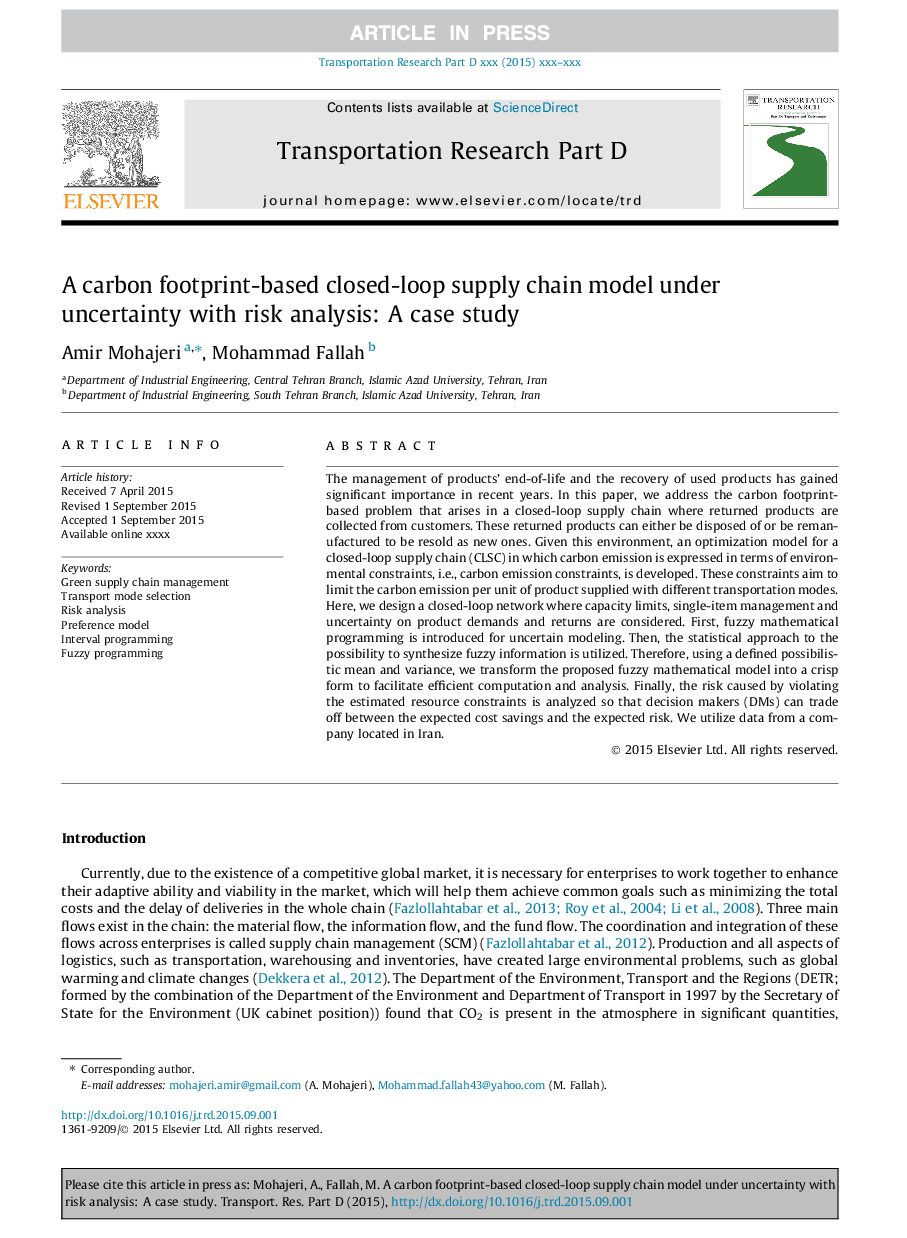| Article ID | Journal | Published Year | Pages | File Type |
|---|---|---|---|---|
| 7499376 | Transportation Research Part D: Transport and Environment | 2016 | 26 Pages |
Abstract
The management of products' end-of-life and the recovery of used products has gained significant importance in recent years. In this paper, we address the carbon footprint-based problem that arises in a closed-loop supply chain where returned products are collected from customers. These returned products can either be disposed of or be remanufactured to be resold as new ones. Given this environment, an optimization model for a closed-loop supply chain (CLSC) in which carbon emission is expressed in terms of environmental constraints, i.e., carbon emission constraints, is developed. These constraints aim to limit the carbon emission per unit of product supplied with different transportation modes. Here, we design a closed-loop network where capacity limits, single-item management and uncertainty on product demands and returns are considered. First, fuzzy mathematical programming is introduced for uncertain modeling. Then, the statistical approach to the possibility to synthesize fuzzy information is utilized. Therefore, using a defined possibilistic mean and variance, we transform the proposed fuzzy mathematical model into a crisp form to facilitate efficient computation and analysis. Finally, the risk caused by violating the estimated resource constraints is analyzed so that decision makers (DMs) can trade off between the expected cost savings and the expected risk. We utilize data from a company located in Iran.
Keywords
Related Topics
Life Sciences
Environmental Science
Environmental Science (General)
Authors
Amir Mohajeri, Mohammad Fallah,
